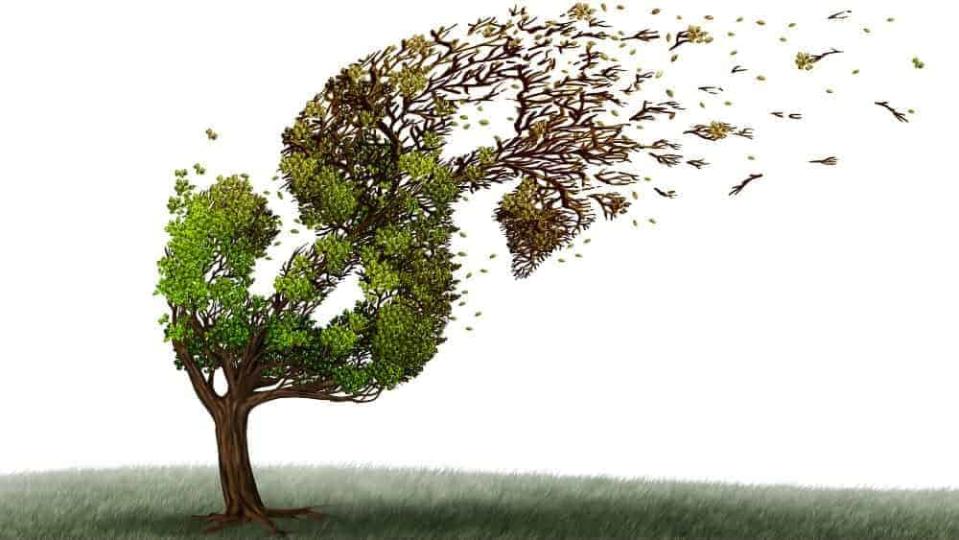Why Did Aurora Cannabis (TSX:ACB) Stock Lose $12 Billion in Value?

Aurora Cannabis (TSX:ACB)(NYSE:ACB) was once the hottest cannabis stock in the world. In 2016, shares tripled. In 2017, they quadrupled. In 2018, the stock hit a high of $14, when just a few years prior, it was valued at $0.50.
Last year, everything changed. The bear market of 2019 may ultimately go down as one of the most painful periods in cannabis history. Billion-dollar companies were forced to the brink of collapse. Even the best-financed competitors saw share price declines exceed 80%.
Aurora was unable to avoid destruction. After achieving a valuation of $15 billion in 2018, the company’s market cap has been reduced to just $3 billion.
Such rapid downward moves are rare. What happened? More importantly, can you take advantage by buying battered shares? If the company ever regains its former glory, there would be at least 1,000% upside.
Here’s what happened
During Aurora’s atmospheric rise, it’s difficult to tell just how special the company was. In 2017, for example, shares surged 400%, but stocks like Cronos Group, Canopy Growth, Hexo, and more posted similar gains. Any company even loosely related to cannabis saw its valuation skyrocket.
It’s difficult to glean any lessons from this period. It was a classic hype cycle — a rising-tide-lifts-all-boats situation.
Actually, the best time to learn something was during the bear market of 2019. Similar to the rise of 2017, last year punished every company in the industry. It was an indiscriminate sell-off, yet the positioning of different companies has become clear. We’ve also gotten a glimpse into what cannabis producers need to do to achieve long-term success.
For example, Tilray stock sank last summer after revealing its average realized price per gram dropped 28% to $4.61. Other producers later reported similar struggles.
I immediately thought of a report from The Guardian the year prior, which stated that Oregon’s “glut of marijuana — over one million pounds of unsold pot — is in many ways the result of an industry still finding its feet.” Canada is experiencing a similar evolution, with the deleterious effects of commoditization only beginning to be felt.
State of affairs
Commoditization is the number one risk for the entire cannabis industry. Despite the feeling that marijuana is different, it’s, in many ways, no more difficult to grow than any other crop. As markets open and industry supply scales, it will be a race to the bottom for pricing. Take a look at any major dairy producer — some of which have already gone bankrupt this year — and you’ll understand how difficult it is to peddle in a pure commodity.
The future, then, will be predicated on brands. Oreos, Coke, and Heinz are all made from commoditized ingredients, yet command premium pricing due to consumer loyalty. The cannabis company that can copy this playbook for pot will win.
Let’s look at the competition. Cronos Group is working with tobacco giant Altria Group, which owns world-renowned brands like Marlboro. Canopy Growth has partnered with Constellation Brands, which distributes popular brands like Corona and Modelo. Hexo, meanwhile, has already co-created a cannabis beverage with Molson Coors Canada. Tilray struck a deal with an Anheuser Busch InBev subsidiary.
Aurora has secured several partnerships, but none as large as its competitors. That means it will need to develop its brands from scratch. Its peers, meanwhile, can leverage existing brands that hundreds of millions of consumers already know and love.
If the future of cannabis is brand power, Aurora is at a clear disadvantage. Until it proves otherwise, shares will trade at a discount.
More reading
Canada Revenue Agency: 1 Big Change to Watch Out for in 2020
CPP Pension Users: Is 60 or 70 the Ideal Age to Take Your CPP?
The Motley Fool recommends Anheuser-Busch InBev NV, Constellation Brands, HEXO., and HEXO. Fool contributor Ryan Vanzo has no position in any stocks mentioned.
The Motley Fool’s purpose is to help the world invest, better. Click here now for your free subscription to Take Stock, The Motley Fool Canada’s free investing newsletter. Packed with stock ideas and investing advice, it is essential reading for anyone looking to build and grow their wealth in the years ahead. Motley Fool Canada 2020

 Yahoo Finance
Yahoo Finance 